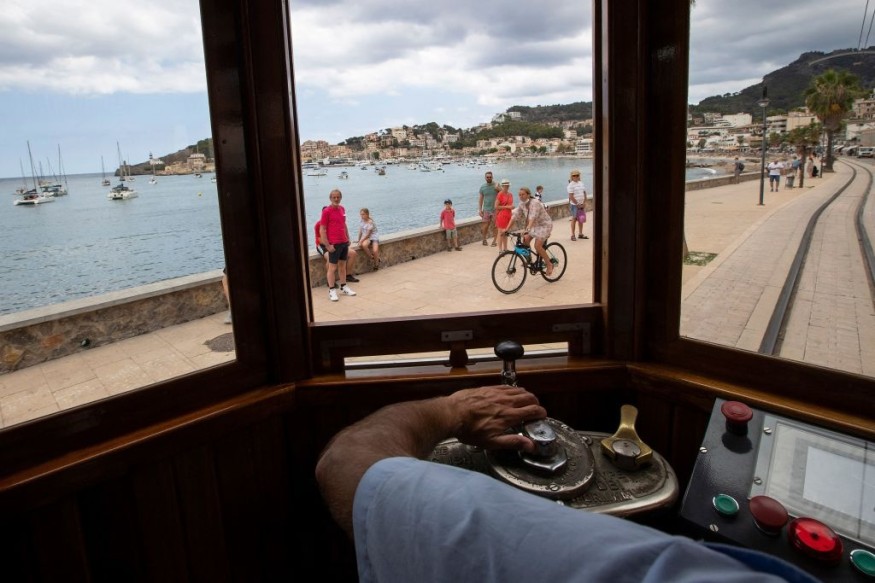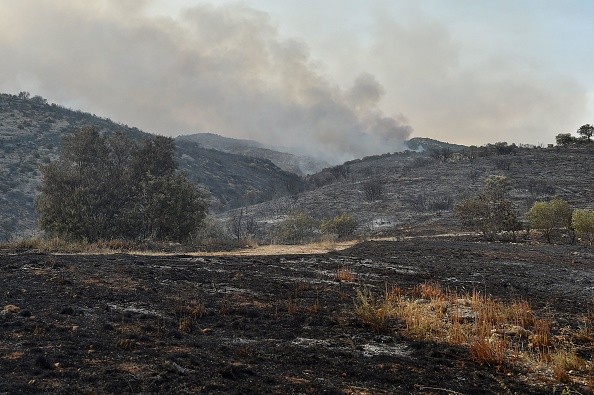The terrible heat wave has claimed over 1,000 lives in Spain and Portugal. As deaths soared in Spain and Portugal due to what may be one of Europe's deadliest heat waves, a measurement of 116 degrees in Portugal smashed a record.

According to BNO News, the heat wave that has scorched parts of the Iberian Peninsula since last week has claimed at least 1,000 lives in Portugal and Spain.
Hundreds of Fatalities
According to the Directorate-General for Health, most of these fatalities have happened in Portugal, where 659 deaths were reported in the previous week. During the same time frame, Spain, a neighboring country, had at least 368 fatalities.
The first day of the heat wave, July 10, saw 15 heat-related fatalities in Spain. Since then, when temperatures have been consistently above 100 degrees Fahrenheit (38 degrees Celsius), there have been more deaths each day in both Spain and Portugal.
Record Breaking Temperatures
On Thursday, the Adolfo Suárez Madrid-Barajas Airport recorded a temperature of 108 degrees Fahrenheit (42.2 degrees Celsius), breaking the previous high mark for July.
According to Portugal's meteorological organization, Instituto Português do Mar e da Atmosfera, the temperature of 116.6 F (47 C) recorded in Pinho, Portugal, on Thursday, July 14, surpassed the record for the highest temperature ever recorded in the nation in July. The previous July record for the nation was set at Amareleja in 1995 at 115.7 F (46.5 C).
As the nation continued to heat up, the northern Spanish city of Bilbao attempted to break its all-time record on Sunday. The city's record high temperature was 108 F (42 C) on July 26, 1947. The temperature reached 108 F (42 C) by Sunday afternoon local time, tying the all-time high.
Intensifying Heat waves

This heat wave is predicted to spread over Europe this week and maybe through the end of the month for some regions.
According to AccuWeather Senior Meteorologist Tyler Roys, "there is fear that this heat might become a long-duration heat wave (20 or more days) for several regions from Portugal to central France and inland southeast Europe as it could endure for the rest of July and continue into August." This encompasses the valleys of Serbia, southern Romania, northern Bulgaria, eastern Bosnia, eastern Croatia, and Hungary.
According to Roys, the intensity of the heat might be comparable to the 2003 heat wave, which directly and indirectly caused the deaths of nearly 30,000 people. The worst heat wave to hit Europe since 1757, he continued, may be this one.
The Sahara Desert in Africa is the source of the unusually warm air, which is expected to spread farther north and east each day until arriving in Belgium, the Netherlands, Germany, and the United Kingdom early this week.
According to Roys, all-time records for July are in danger of being approached, tied, or perhaps broken in Ireland and the United Kingdom. "This covers specific cities like York, Birmingham, Dublin, and Dublin."
On July 15, a Friday, the U.K. For Monday and Tuesday, when the "exceptional hot spell" is anticipated to take root and have "widespread impacts on people and infrastructure," the Met Office issued its first-ever red severe heat warning.
Dangerous Heat
According to officials, "illness and death may occur among the fit and healthy - and not only in high-risk categories" during this first-ever utilized nationwide heat wave emergency.
In the U.K., a brand-new all-time high may be achieved. At the height of the record-breaking heat. The nation's record was established on July 25, 2019, in Cambridge Botanic Garden, 102 F (38.7 C). When the heat is at its worst, Londoners may see temperatures close to 100 degrees early in the week.
Early this week, temperatures in Paris may be only a degree or two below 104 F. (40 C). In 2019, amid a heat wave, officials let Parisians cool down in the Trocadero Fountain next to the Eiffel Tower when temperatures reached this zone. This action could be repeated in the upcoming days.
As the Tour de France makes its way through southern France after leaving the Alps, riders and fans should also prepare for the unusually high temperatures. When roads are temporarily closed to bikes, spectators lining the streets should take the necessary steps to prevent heat-related sickness because the temporary closures may restrict access to some medical services, according to experts.
The hundreds of firefighters battling huge fires throughout Portugal, Spain, and France are finding it increasingly difficult due to the severe heat.
Related Article : Utah Faces an Environmental Catastrophe as the Great Salt Lake Continues to Dry Up
For more environmental news, don't forget to follow Nature World News!
© 2025 NatureWorldNews.com All rights reserved. Do not reproduce without permission.





